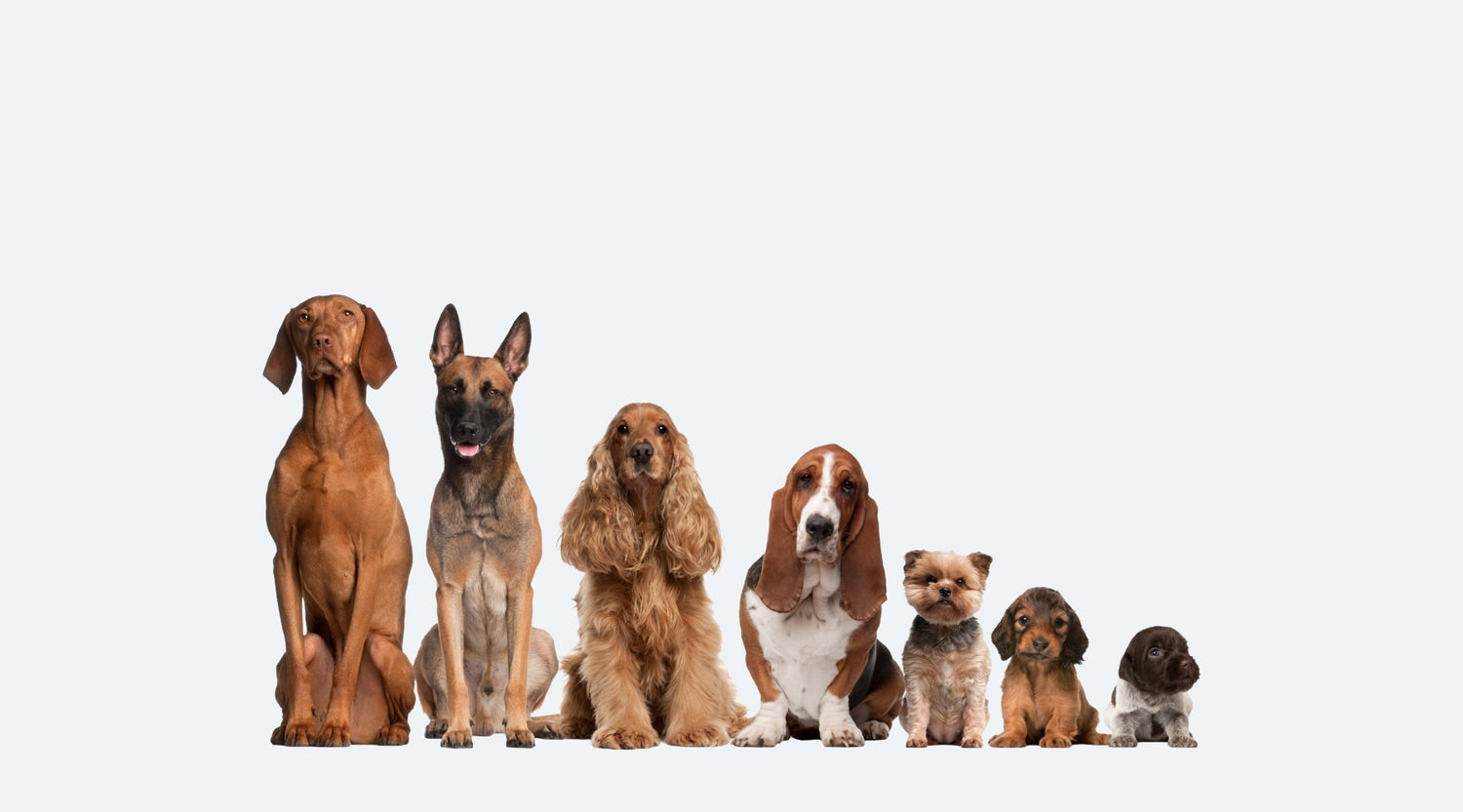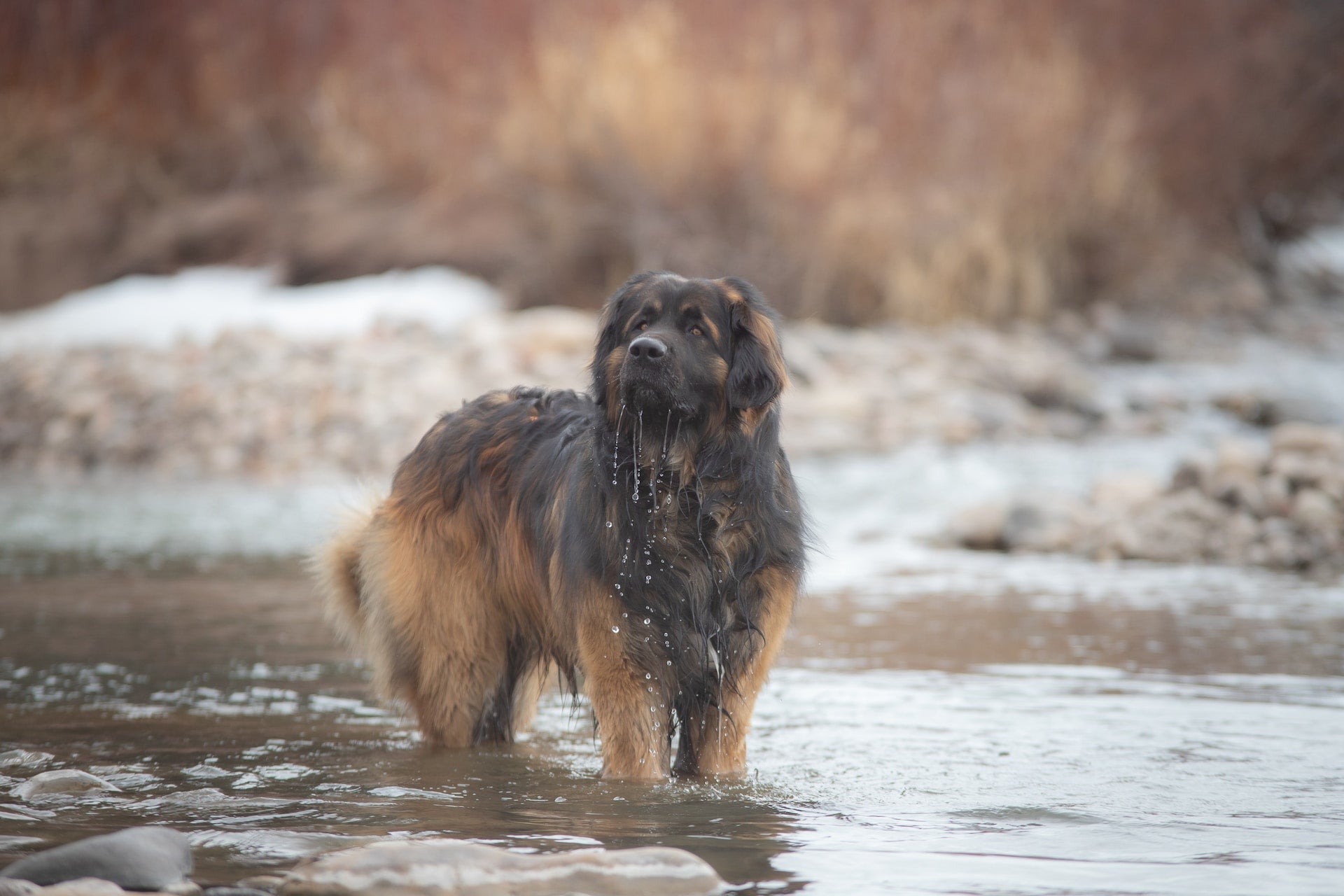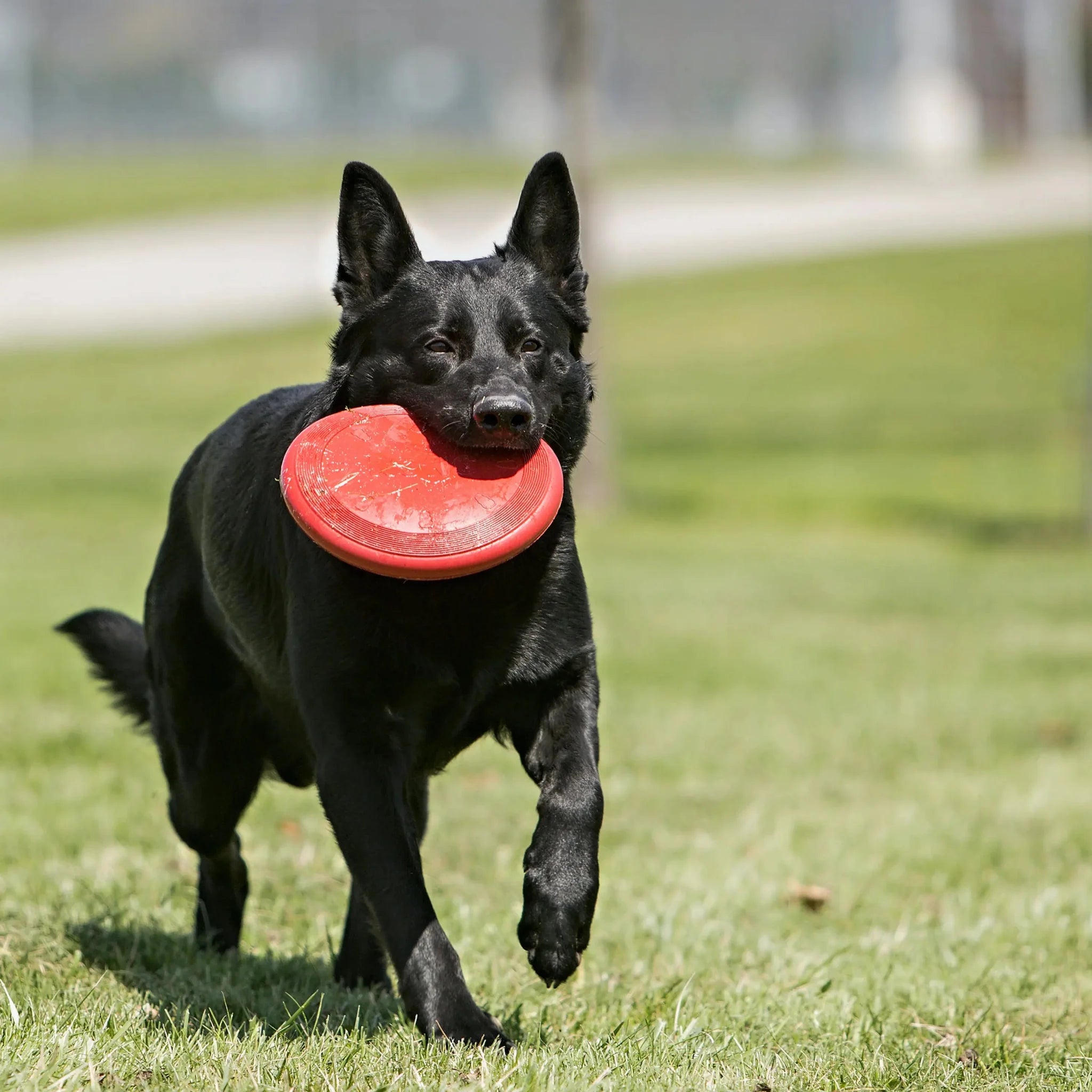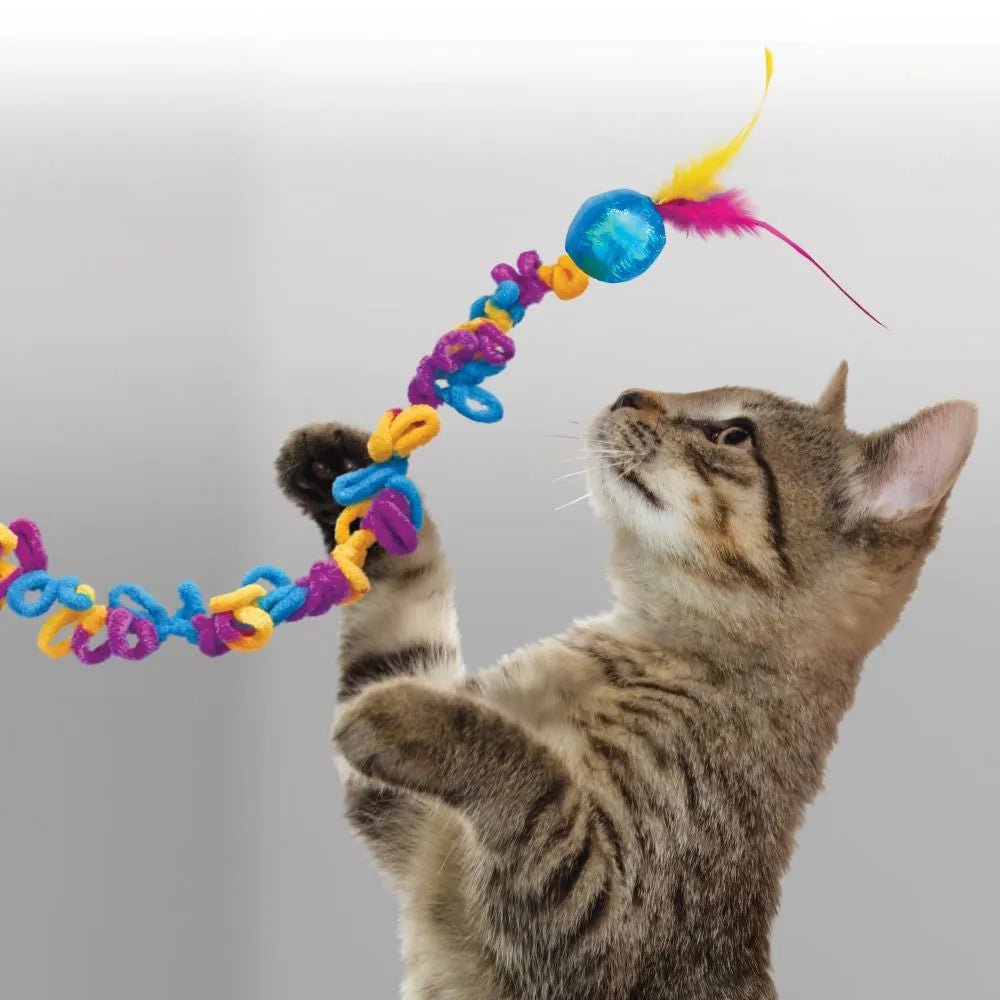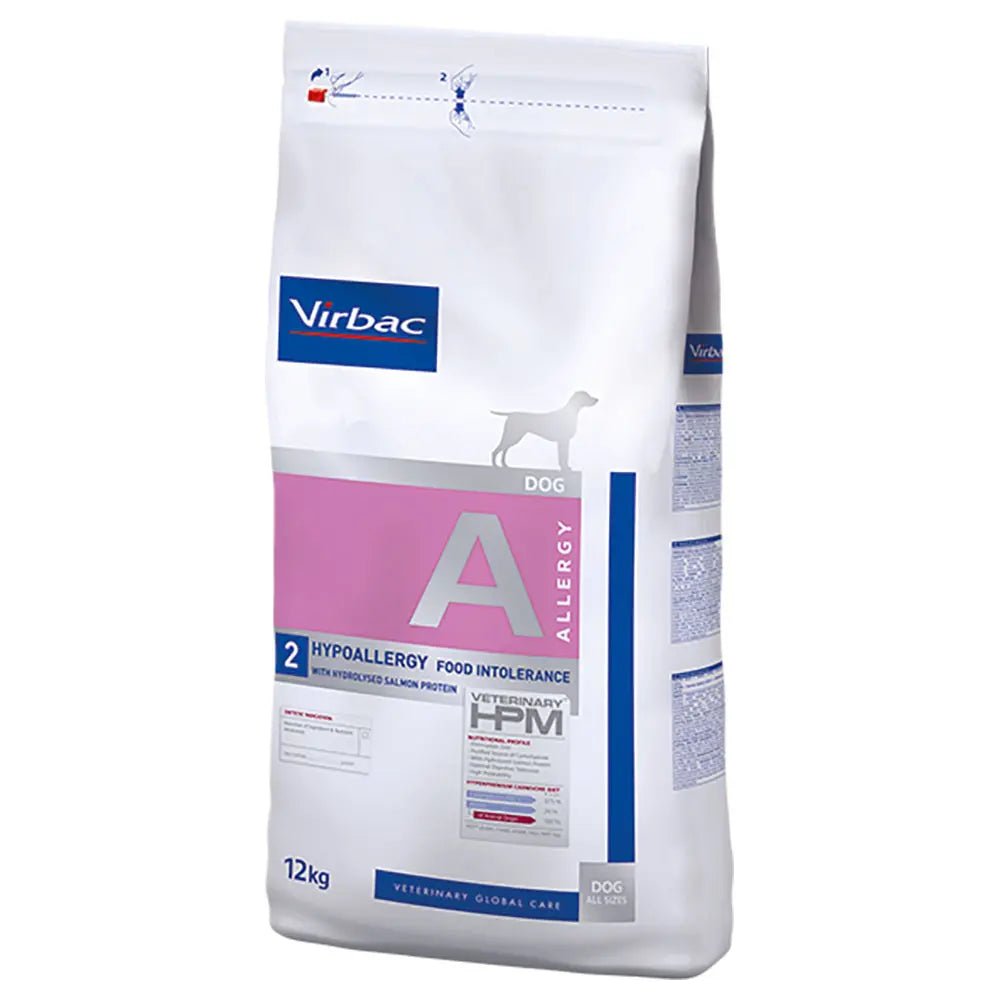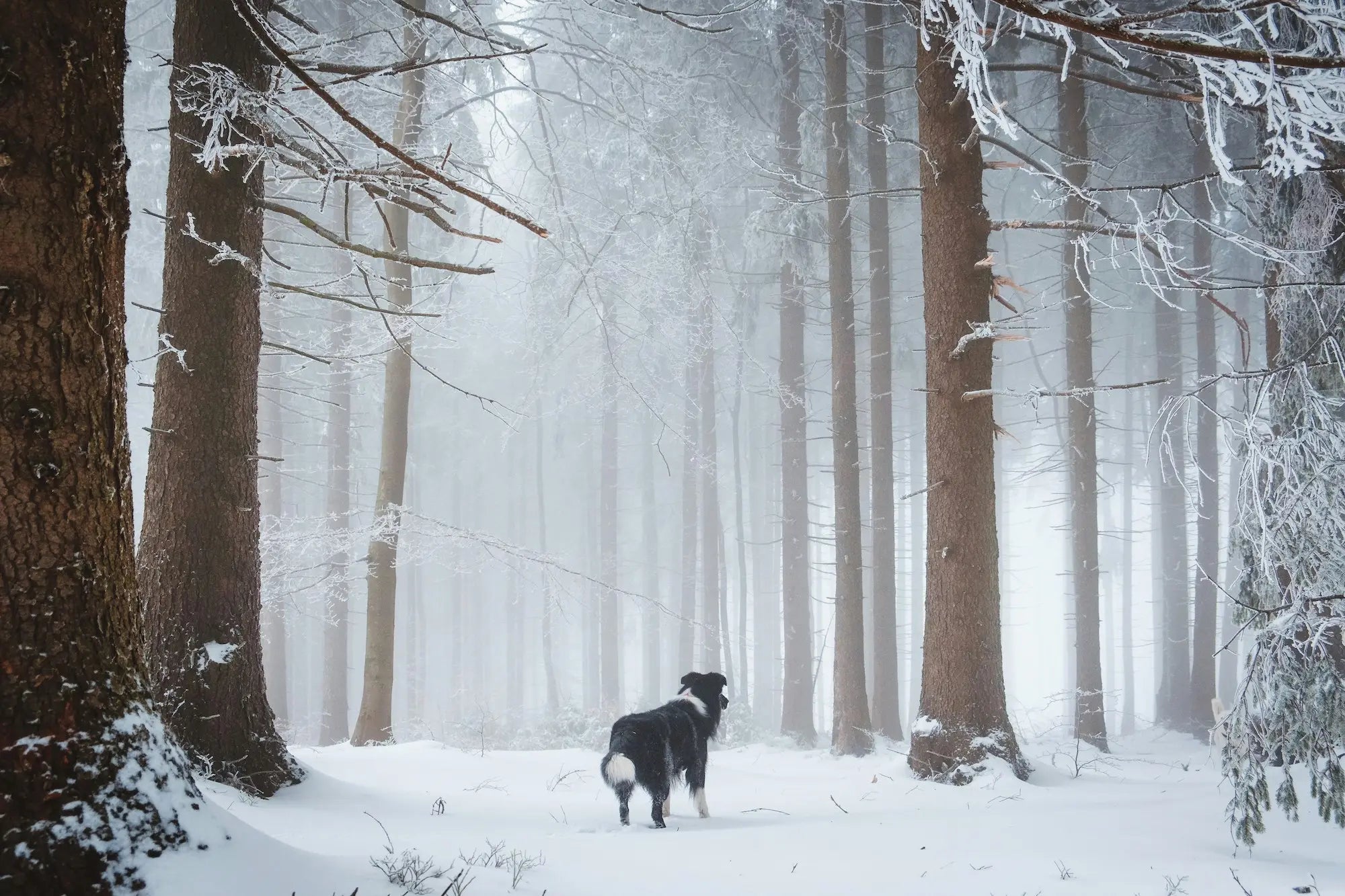The Leonberger, also known as the lion dog, is a large companion and family dog with a muscular body and lots of fur. Are you wondering if the Leonberger is the right breed for you? We explain what characterizes the Leonberger's personality, activity level, health and what you should think about in everyday life as a Leonberger owner.
race facts

Family friendly

Activity level

Fur care

Training needs

Clearing

Size
Facts about the breed
The Leonberger originated in a small town called Leonberg, in the southern part of Germany. Here, shortly before the middle of the 19th century, the mayor Heinrich Essig decided to breed a dog that would resemble the lion in Leonberg's coat of arms. The basis for the Leonberger was a mix of a Newfoundland (Landseer), a long-haired Saint Bernard and a Pyrenean. The breed was originally a guard dog.
What can you expect as an owner of a Leonberger?
Personality
Personality
The uses of a Leonberger are many, but today they are mainly a great companion and family dog. As a family dog, the Leonberger is loyal, neither shy nor aggressive, but obedient, fearless and intelligent. A Leonberger is well suited to families with children, but remember that small children should never be left alone with dogs.
The Leonberger makes a fine herding dog and is originally a cattle herder. It also has water-repellent fur and webbed feet, so it often loves water and is a good swimmer.
Activity level
Activity level
To make a Leonberger happy with you, it needs both mental and physical exercise every day.
Because the Leonberger is so large, it needs a lot of space to move around. Consider this if you live in a small apartment, as it can be demanding for a large dog.
Training
Training
A large, untrained dog can be a lot to handle. That's why it's important to start training and socializing your Leonberger early. This shouldn't be a problem, as the Leonberger has a good learning ability and memory. As with other dog breeds, consistent and positive reinforcement is key.
Health
Health
Weight and size
A male Leonberger usually weighs between 70 - 80 kg and is approximately 72 - 80 cm tall.
The bitches weigh between 55 - 65 kg and are approximately 65 - 75 cm tall.
Lifespan
8 - 9 years
Hereditary diseases
It is common for some dog breeds to be more susceptible to hereditary diseases than others. Leonbergers are among the breeds most commonly affected by hereditary skeletal diseases such as hip dysplasia and elbow osteoarthritis . Enostosis (growth spurs) is a self-healing skeletal disorder and is also common among Leonbergers. Unfortunately, the Leonberger is also more predisposed to certain types of cancer . In addition, heart disease , spondylosis and allergies can occur in the breed. The Leonberger gene may also be predisposed to glaucoma.
Fur
Fur
When you see that the Leonberger's entire size is covered in fur, you will also notice that the breed comes with quite a bit of grooming. The coat is long-haired, coarse and dense with a plentiful undercoat. The Leonberger has distinct breeches on the hind legs, hair on the front legs and a mane around the neck.
The coat should be brushed frequently, preferably several times a week, especially during the shedding periods in spring and autumn. The coat color can be light brown, yellow brown, and reddish brown with black on the face.
Food and nutrition
Food and nutrition
When choosing dog food for a Leonberger, you should choose a type of food that is adapted to extra large dog breeds and their health. This is to avoid health problems related to skeletal diseases such as hip dysplasia and elbow dysplasia.
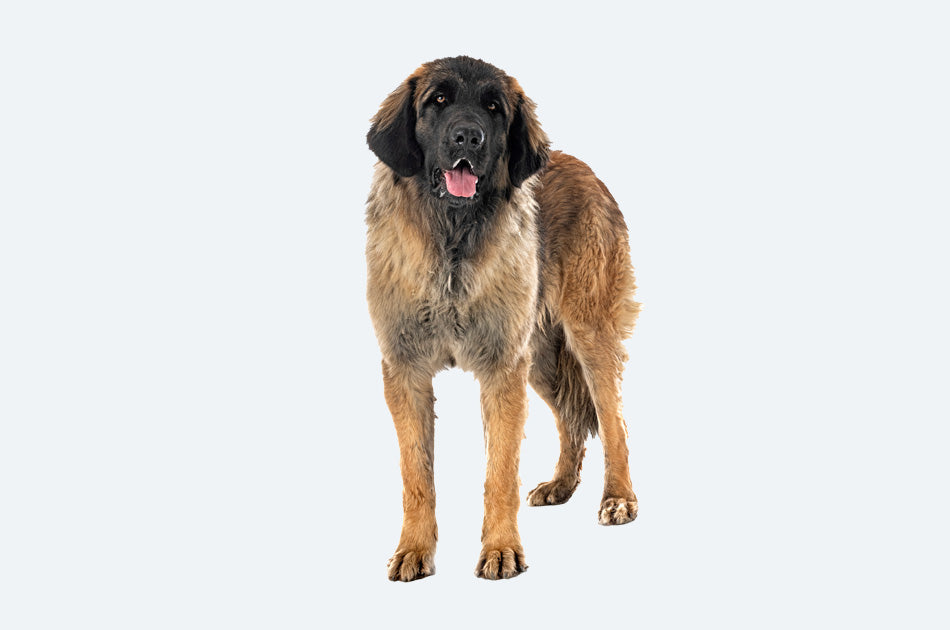
Leonberger
If you want to own a Leonberger, you should make sure to find a reputable breeder. How much a Leonberger costs will vary, but you can expect the price to be around 20,000 – 23,000 NOK.
It is important to choose a seller who provides you with information about how the dog was bred to ensure that you are not contributing to uncontrolled or illegal dog trade. Unfortunately, not everyone breeds properly and properly, which can lead to serious diseases in the puppies. Being well prepared and finding a reliable breeder is therefore in the best interest of both you and your dog.
